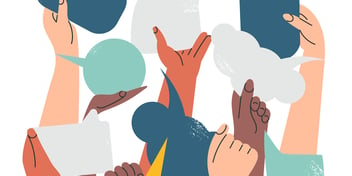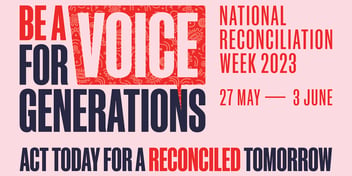Voice to Parliament referendum a chance to learn and grow as a community

Australians will soon take part in the historic Voice to Parliament referendum that will ask to change the Constitution to establish a body called the Aboriginal and Torres Strait Islander Voice.
On the day of the referendum, 14 October 2023, you’ll be asked:
“A Proposed Law: to alter the Constitution to recognise the First Peoples of Australia by establishing an Aboriginal and Torres Strait Islander Voice. Do you approve this proposed alteration?”
The proposed Voice will give independent advice to the Parliament and government and exist alongside other organisations and traditional structures. The Voice will be chosen by Aboriginal and Torres Strait Islander people and reflect the wishes and values of local communities.
Not only is the Voice referendum set to be a historic event for Australia, but it also represents a unique opportunity to understand Aboriginal and Torres Strait Islander people’s issues better.
As you hear the national conversation between the ‘Yes’ and ‘No’ sides, the Australian Water Association is encouraging everyone to do their best to remain informed. Having the right education and resources can then help you investigate and dismiss misinformation around the proposal.
To give our members and supporters the best opportunity to be fully informed, we’ve collated important information you should know before heading to the vote.
The vote to recognise First Nations peoples
While the referendum has recently sparked national conversations and debate, the idea of a Voice to parliament is not new. Reconciliation Australia says the Voice is a result of “years of deep thinking and consultation” with many Aboriginal and Torres Strait Islander communities.
“The need for Aboriginal and Torres Strait Islander people to have a say in their own lives has been at the heart of reconciliation for decades.”
Reconciliation Australia says this is a chance to make a difference for First Nations people.
“It is, as many have described it, a modest proposal from First Nations people to improve their circumstances by providing input into policy and other deliberations in Parliament and by the Australian Government.”
Listening to communities and closing the gap
According to Reconciliation Australia, a Voice to parliament will not only provide recognition but help close the gap between First Nations and other Australians.
They point to a Productivity Commission report that found only four of the 19 social and economic indicators between First Nations and other Australians targets are on track to be met. They say listening to ideas directly from First Nations families and communities leads to better policies to improve lives.
“Listening to those on the ground, in the cities, the towns and remote communities of Aboriginal and Torres Strait Islander Australia as Governments formulate laws and policies that affect Aboriginal and Torres Strait Islander Australia is a matter of common sense.”
“We can no longer have business as usual because the business is not working. This is a chance to uplift Australia, a chance for Australians to feel proud that we are a nation ready for reconciliation and justice for the First Peoples of this land.”
Supporters of the proposal also believe listening will bring us together as a country, save money by preventing programs that don’t work, and help government deliver effective outcomes.
Understanding views and asking questions
The Voice proposal represents a big change to our constitution, something that deserves a lot of discussion and thought.
As we get closer to making this decision, it’s important to understand all elements of the proposal by having clear, purposeful conversations and asking respectful questions.
According to the case for voting ‘No’ in the Australian Electoral Commission’s referendum booklet, the vote poses some questions and risks.
“It is legally risky, with unknown consequences. It would be divisive and permanent. No details have been provided on how members of the Voice would be chosen or how it would operate.”
“Australians are being asked to vote first before these details are worked out. Australians should have details before the vote, not after.”
It also states that if passed the Voice may go beyond its scope, become costly and overly bureaucratic, and potentially cause major delays in government decision-making.
“Putting a Voice in the Constitution means it’s permanent. We will be stuck with negative consequences.”
Unity before division
As the referendum gets closer, we encourage everyone to follow the advice from Reconciliation Australia to speak to friends, family, and colleagues.
“Over the next few weeks of the campaign, we urge unity before division, respect before abuse and truth above misinformation.”
“This is a chance to uplift Australia, a chance for Australians to feel proud that we are a nation ready for reconciliation and justice for the First Peoples of this land.”



